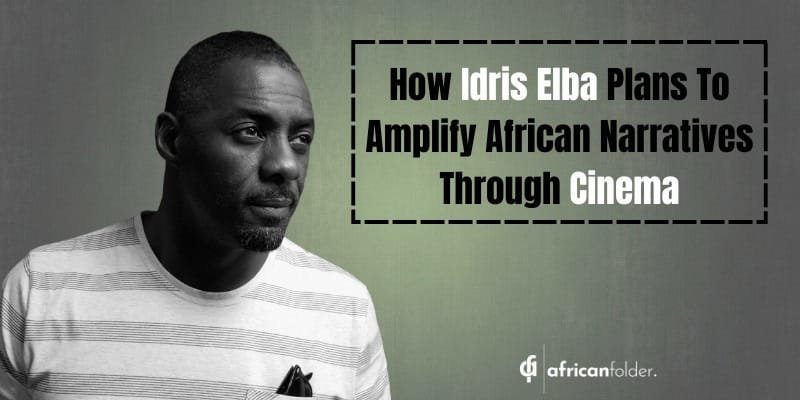Idris Elba, the British actor known for his powerful performances in The Wire, Mandela: This is why the producer of movies such as Long Walk to Freedom and Beasts of No Nation is on a mission to tell African stories through film. A future resident of Africa, likely within the next ten years, Elba has been actively investing in the development of the African cinematic business, opening studios in Accra, Ghana, and Zanzibar, Tanzania. This is part of a wider goal of empowering Africans to own their narratives and let the world know what Africa and its rich culture hold.
So, for Elba, the attachment to the continent is highly personal and very real Given his roots, music is in the bone marrow of the British-Ghanaian-Sierra Leonean actor. Langa’s perseverance in enhancing the African film industry reflects a range of efforts in which the African-born diasporic personalities work hard for trying to strengthen the relationship between Africa and the rest of the world. His motivation is clear: The history of Africa should be written by and narrated by Africans. “It’s really important that we own those stories of our tradition, of our culture, of our languages, of the differences between one language and another,” Elba said in a recent interview. “The world doesn’t know that.”
For Elba, it is not just about the art of telling a story; it is about building the systems required to support and develop a viable film industry across Africa. He aims to develop movie production houses in the continent to encourage local producers to access the facilities, training, and corporate support they require to tell Africa’s stories as they are. He stresses the importance of the African perception to be involved from the funding, shooting, and marketing up to the distribution of the movies. “I’m here to bolster the film industry—that is a 10-year process. I won’t be able to do that from overseas. I need to be in-country, on the continent,” he said.
Idris Elba’s vision for Africa’s film industry is firmly rooted in a belief that cinema can act as a form of “soft power”—a tool that can reshape how the world perceives Africa. “If you watch any film or anything that has got to do with Africa, all you’re going to see is trauma, how we were slaves, how we were colonised, how it’s just war. When you come to Africa, you will realise that it’s not true,” Elba explained. His ideal is for people across the world to know as much about African cities as they currently know about the African American cities of New York and Los Angeles.
The actor’s work in Africa is not just about where he’ll live—although he plans to split his time between multiple African countries, including Ghana, Sierra Leone, and Tanzania—but also about how he can amplify voices from across the continent. “I’m going to live in Accra; I’m going to live in Freetown; I’m going to live in Zanzibar. I’m going to try and go where they’re telling stories—that’s really important,” Elba said. This fluidity mirrors his broader Pan-African philosophy, where his focus is not on one region but on supporting the continent as a whole.
Another example of this approach was claimed by his future work in television pictures as Okonkwo in the screen version of Chinua Achebe’s Things Fall Apart. By assuming this renowned African character, Elba contributes to making one of Africa’s most appreciated literary works globally, and more importantly, he is doing this with the work being directed by an African. This is one project through which he is applying his influence to tell stories from Africa and do so in manners that are heard internationally.
Idris Elba has very lofty goals regarding the future of cinematic production in Africa and playing the long game. He sees future African filmmaking as the capacity to carve a new image of Africa that is much closer to the true picture of Africa—a rich, diverse, and innovative continent. In building such infrastructure and increasing diverse representation to amplify the African voices, Elba wants to inspire generations of African creative voices.
As the global entertainment industry begins to take more notice of African talent and stories, Elba’s work is helping to ensure that Africans are not only participants but leaders in this transformation. “We have to invest in our storytelling because when you see me, you see a little version of yourself, and that encourages us,” Elba said. It is only one more step to have a new generation of committed and active African directors who are capable of changing the prejudices existing in the world and opening new doors to future young African directors.















